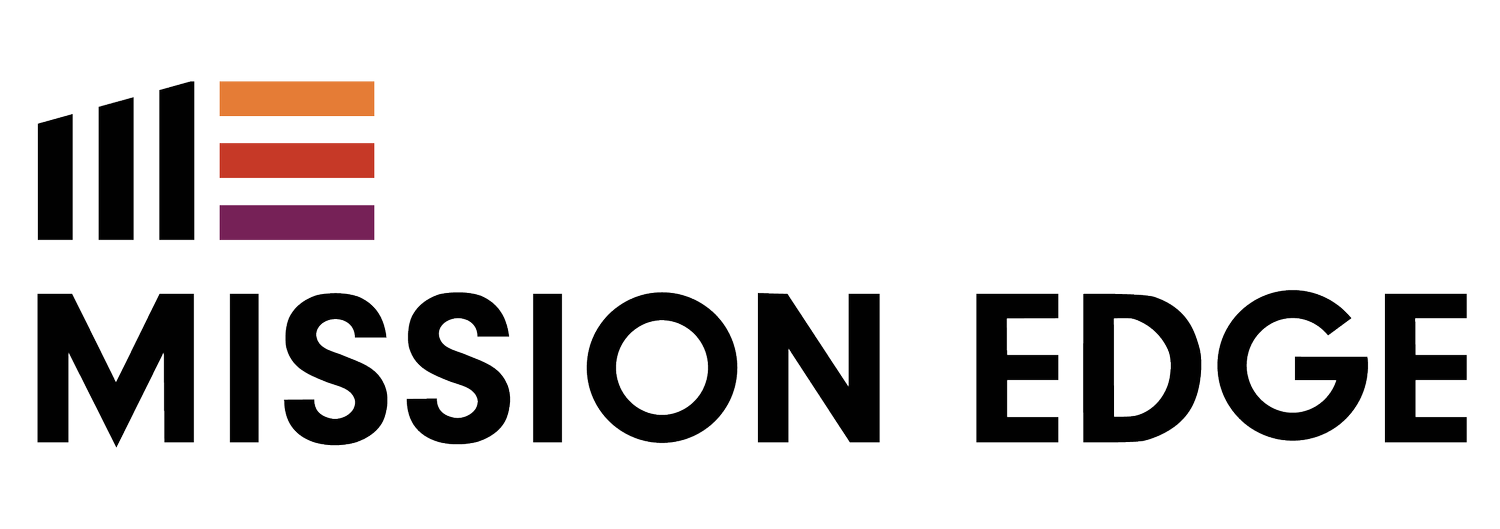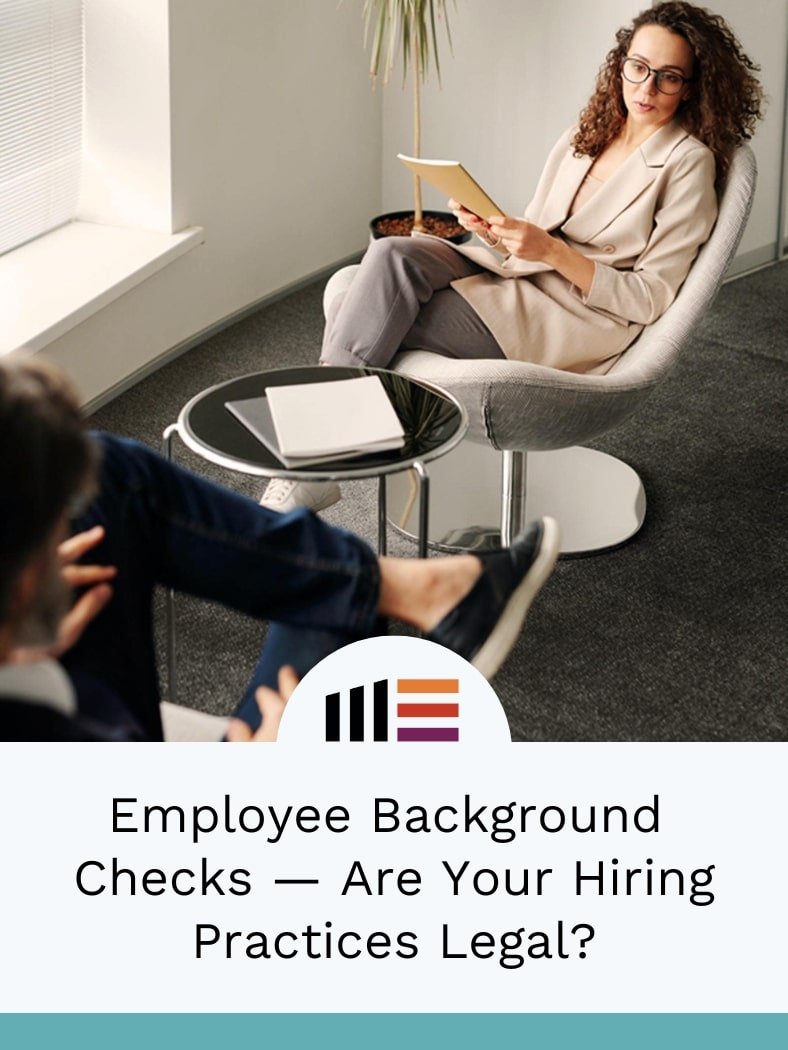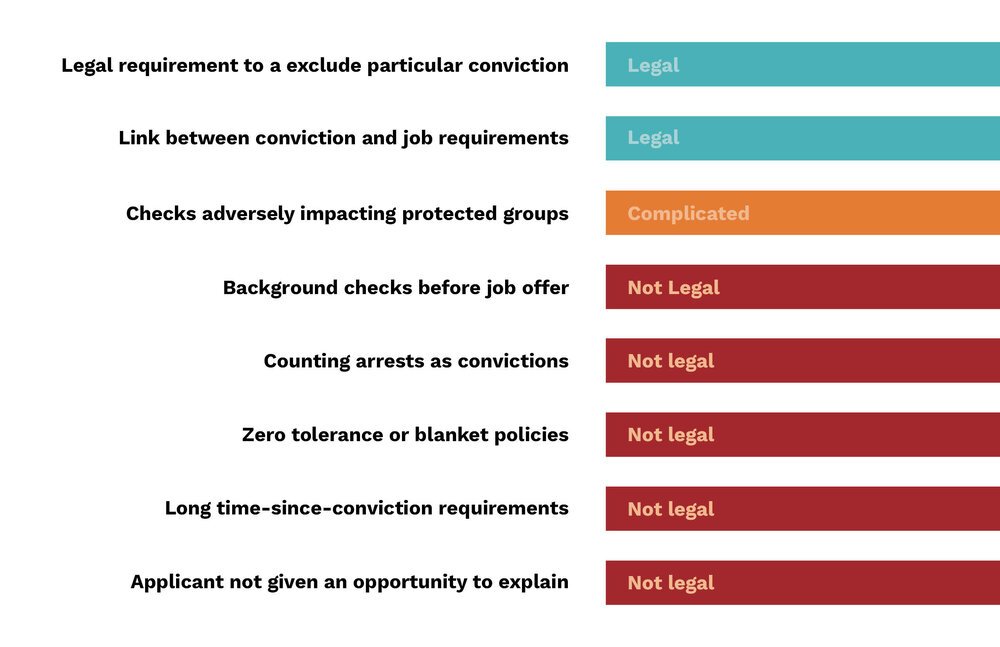Employee Background Checks – Are Your Hiring Practices Legal?
When hiring new employees, it’s vital for organizations to understand the regulations behind background checks to ensure they’re conducting lawful hiring practices.
Certain laws require employers to conduct criminal history checks for certain jobs and may forbid employers from hiring applicants convicted of particular crimes. For instance, holding a position with financial responsibility in the mortgage, title, or escrow industries with a conviction of theft, embezzlement creates a public risk and is therefore regulated to require those individuals not work in certain positions. These regulations can be a bit nuanced. We recommend working with a third-party background checker to ensure compliance.
When to Conduct A Background Check
First, it is important to note that In California, it is unlawful to conduct a background check before extending an offer. Under the Fair Employment and Housing Act, the Fair Chance Act prevents employers in California from asking about a convictions prior to assessing their qualifications. So not only is it unlawful to conduct a pre-interview background check, it is also unlawful to include interview questions about their criminal record as well. If an employer is going to conduct a background check, then it should clarify in the offer that it is a conditional offer for employment, contingent upon favorable background results.
Consequences for Unlawful Background Checks
But things can become more complex as you create more rules regarding who to hire based on their records. Using blanket policies, arrest records, or policies that adversely affect protected groups can create unnecessary risks. An employer can face strict penalties under state and federal anti-discrimination laws or the Fair Credit Reporting Act. Employees can also sue for damages. If a group of employees were impacted by unlawful background check practices, an employer may also be exposed to class action suits.
Background Checks and Protected Classes
Policies that adversely impact individuals of protected classes (gender, race, ethnicity…) may be considered unlawful. These groups are protected in California by the Fair Employment and Housing Act and at the Federal level, the anti-discrimination laws under Title VII of the Civil Rights Act protect individuals. However, a background check that causes an adverse impact may still be legal if it is applied consistently to everyone and not a pretext for discrimination.
Background Check Arrest Records
Looking at arrests can be a common mistake. However, it is not lawful for employers to consider arrest records. Since we have a right to a fair trial and charges may be dismissed, employers can only consider convictions to determine employment eligibility.
Zero Tolerance Background Checks
It can be tempting to simply say no-one with a criminal conviction (regardless of the nature of the offenses) can be hired. However, courts generally look unfavorably at “zero tolerance” or blanket policies where any employee with a conviction (misdemeanor or felony) is prohibited from employment. Employers should assess if a conviction has any bearing on the requirements of the job. Generally, individuals can only be disqualified for a position if the employer can show that there is a direct link between the criminal conviction results and the requirements of the job (i.e. job requires handling money; individual was convicted of embezzlement).
Criminal Drug Offenses
Another common blanket policy practice is prohibiting anyone with a criminal drug offense. Depending on the nature of the job. If there are governing laws or regulations, there may be an exception. For instance, truck drivers are required to be drug free to ensure safe roads. Those unique jobs aside, if an employer wants to employ a drug free workplace, they can set up a pre-employment drug screen program.
How Far Back Should Your Background Check Go?
Employers must weigh both the severity of a crime and the length of time since the offense. Generally, more serious crimes may be considered for up to seven years. For less serious crimes, 2 – 5 years may be a reasonable starting point for consideration. Remember again, no blanket policies.
How to Conduct a Background Check
Considering the complex rules regarding background checks we recommend employers use third-party investigation companies. These types of organizations are defined under the FCRA and have special requirements that they must follow. The Fair Credit Reporting Act (FCRA) places certain requirements on employers that outsource their criminal history and credit history checks to a Credit Reporting Agency (CRA). The FCRA requires employers to:
Notify applicants in writing that the employer might use information from a consumer report (e.g., credit history, criminal record) to make employment decisions.
Obtain written permission from the employee to request the consumer report.
Certify to the CRA that the employer will comply with FCRA requirements.
Notify the applicant if something in the consumer report will adversely affect the hiring decision and then provide the applicant with a copy of the consumer report.
Provide the applicant with a copy of A Summary of Your Rights Under the Fair Credit Reporting Act.
Allow the applicant the opportunity to correct or explain incorrect or incomplete information on the consumer report prior to the employer making the final hiring decision.
Background Check Tips
Never conduct a background check until a conditional offer for employment has been made. Make sure all offers for employment clearly state that they are contingent upon receiving favorable background check results. Seek the advice of a legal or HR professional before deciding to disqualify an applicant because of unfavorable background check results. Mission Edge is a leading HR resource for nonprofits and social purpose enterprises in the San Diego area. Contact us here if you have any questions or concerns regarding your organizations background check processes or general hiring practices.
Learn more about Human Resources
Human resources services that scale with you, from nonprofit staffing to handbook creation
Our HR business partners provide processes and industry expertise to ensure long lasting impact.






